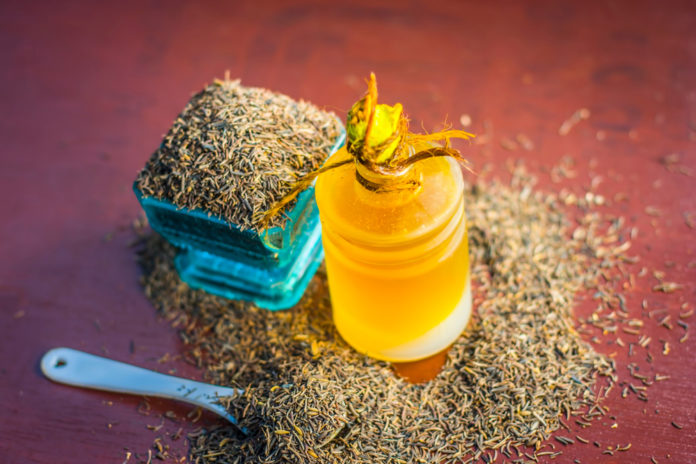Black seed oil is derived from Nigella sativa, a small flowering shrub displaying purple and white flowers that produces fruits with tiny black seeds. It is known and recognized under a number of aliases, including black caraway, black cumin, black onion seed, and kalonji. But whatever you prefer to call it, black seed and its produced oil gifts nine uses and health benefits to the body!
9 Black Seed Oil Uses
1. Promote Digestive Health
One of the most recognized uses of black seed oil relates to digestive health, as it is widely and commonly used to manage an upset stomach, gas, diarrhea, constipation, and hemorrhoids.
2. Regulate Blood Sugars
Black seed oil may regulate blood sugars, mostly linked to possible blood sugar-lowering effects. A study published in the Journal of Research in Medical Sciences revealed Nigella sativa supplementation might be effective in glycemic control.
3. Lose Weight
While it will not magically melt pounds away, black seed oil may assist in weight loss efforts. The theory primarily relates to blood sugar control, which helps to keep blood sugar levels steady and subsequently controlling appetite and reducing carb cravings.
4. Improve Asthma Symptoms
Based on a compiled literature review, black seed could be beneficial in improving different asthma outcomes, including reducing airway inflammation and managing symptoms such as coughing and wheezing. Benefits are primarily related to the oil’s anti-inflammatory and anti-histamine effects.
5. Fight Against Cancer
Especially as the search for cancer’s cure continues, it is comforting to know there are some alternative therapies that offer some sort of benefit. In fact, the thymoquinone compound found in black seed oil is touted as an anti-cancer chemical and has been used by cancer patients in as a dietary supplement, with complementary evidence suggesting thymoquinone helps induce apoptosis (cell death) and enhances the effects of anti-cancer medications.
6. Reduce Heart Disease
Taking black seed oil can reduce heart disease by combatting against atherosclerosis, or hardening of the blood arteries. Animal studies have also shown the oil can lower LDL (or “bad”) cholesterol while elevating HDL (or “good”) cholesterol, which may be cardio-protective.
7. Support Skin Care
Black seed oil is also used for skin problems like eczema and psoriasis, with some evidence showing the oil may be as effective as topical steroids to help sooth inflammation and accelerated skin healing.
8. And Hair Care
Along with supporting skin care, hair can also benefit! The oil is touted to relieve a dry scalp and strengthen and grow hair, particularly when used as a conditioner.
9. Offer Arthritis Relief
The anti-inflammatory properties may offer arthritis relief by reducing inflammation to then alleviate joint pain, tenderness, and redness.
How to Use Black Seed Oil and Dosing Recommendations
First and foremost, it is imperative to recognize black seed oil should not displace standard medical therapy, but rather view it as an alternative and complementary approach. Nonetheless, black seed oil can be used in a number of fashions and is commonly available in pill, extract, and tea forms. It also offers use in the kitchen, enhancing the flavors of a number of foods.
Some proponents suggest a typical daily dosage of one to three tablespoons of the oil extract is the most effective way to use black seed oil. However, there is no established dosing recommendations at this time. While black seed oil use is thought to be safe, WebMD warrants special precautions and warnings to pregnant and breast-feeding women, children, and individuals with blood disorders and diabetes. Black seed oil may also slow down the blood clotting process, further encouraging to stop black seed oil at least two weeks before a surgery. Along with following indicated directions on product labels, consult with your primary care provider, pharmacist, or other healthcare professional to ensure optimum safety.








